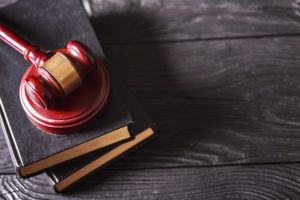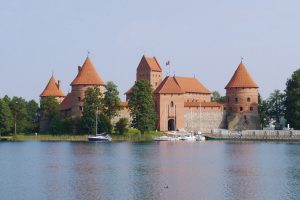BGC: Dugher warns draconian gambling laws will push UK players to the black market

The CEO of the Betting and Gaming Council has written an opinion piece warning against the imposition of draconian rules after the UK government’s review of gambling legislation.
UK.- The UK government’s review of gambling legislation should – we think – be about complete. For months, gambling minister Chris Philp has been promising the delayed gambling white paper proposing new regulations would be “coming soon”. And as such, the various stakeholders are making their final remarks on what they think the government should or shouldn’t do.
Michael Dugher, CEO of the industry lobby group the Betting and Gaming Council (BGC), has been vocal throughout the process, waged in a continual war of words with the equally vocal anti-gambling All-Party Parliamentary Group on Gambling Harm.
This weekend he wrote an op-ed piece in the Daily Telegraph with another warning on the dangers of tightening regulations on the licensed gaming market. He began by attacking the anti-gambling “prohibitionists”.
He wrote: “600 million people, in over 140 countries and from every conceivable background, tuned in to watch this year’s Grand National. I was at Aintree along with thousands of other people out to enjoy themselves after so many months of miserable lockdowns and government covid restrictions.
“Millions of us also enjoyed a flutter on the race. But for 22.5 million adults, gambling isn’t something they do once a year, it’s something they do every month. That can be watching the racing, buying a lottery ticket, playing bingo and casino games, or having a bet on the football and other sports. But the freedom to have a wager is under threat from a tiny minority of anti-gambling prohibitionists who are determined to make betting the latest victim of the nanny state.”
Turning to the government’s expected proposals for new legislation, he wrote: “The government is right now putting the final touches to an overhaul of gambling laws which could have far-reaching consequences.
“A small but noisy anti-gambling lobby is demanding draconian restrictions for an activity they don’t approve of. They want sports sponsorship and advertisement bans, an end to promotions like free bets, a brand new tax on the industry, and blanket so-called ‘affordability checks’ if someone wants to spend even £23 a week. Gamblers could be forced to produce their bank statements and payslips before having a bet.”
The danger of pushing players to the black market
He warned that it’s not only gambling company execs who will suffer if the government gets it wrong.
“There’s much at stake for the country too,” he wrote. “The regulated betting industry supports 119,000 UK jobs, generates £4.5bn in tax and contributes £7.7bn to the economy. It provides a lifeline to many of the nation’s favourite sports, many of which were hard hit by the pandemic. Betting puts £350m into horse racing, £40m into the English Football League and £12.5m into snooker, darts and rugby league.
“But there’s an even bigger risk if ministers mess up changes to betting. Gambling on global black market websites operating in the UK is now in the billions of pounds. The number of punters who’ve already been driven to the unsafe, unregulated black market online has doubled in recent years.”
He suggested the UK need only look across to Norway to see the results of an overly strict market.
“These are warning signs but there are also lessons from abroad,” he wrote. “Norway was once hailed as a shining beacon of regulatory reform after introducing stake limits, affordability checks and advertising bans. But as a result, customers flocked to the online black market, which now accounts for over 66 per cent of all money staked there.
“France banned online casino gaming and now 57 per cent of money staked there goes to black market operators. In Norway, 1.4 per cent of their population are problem gamblers. In France, it’s 1.6 per cent. And it’s the same story in Spain, Denmark and Italy. All saw spikes in dangerous black market use paradoxically after bringing in regulations to prevent gambling harm.”
A record low in problem gambling
Dugher highlighted that the UK has achieved a low rate of problem gambling.
“To give some rare perspective to this debate, rates of problem gambling in Britain are now at 0.2 per cent – down from 0.4 per cent the year previous, according to the independent regulator the Gambling Commission. This is down to recent changes and rising standards in what is an already highly regulated industry.”
He suggested overly strict regulations could also have implications for the government come election time.
“Perspective is certainly something the government’s ‘red wall’ voters have,” he said. “When opinion research firm Public First carried out focus groups in the seats the Conservatives must hold, many voters said they saw betting as part of their culture. And after two years of being told what they could and could not do during the pandemic, they were hostile to the suggestion that politicians or bureaucrats might start interfering in what they choose to do with their own money.
“In the aftermath of Partygate, Downing Street has been anxious to reassure Conservative MPs that there has been a ‘reset’. No 10’s new high command, like Andrew Griffith and Steve Barclay, have said it’s time to get the economy moving again and that means getting the State out of the way.
“Everyone, including the industry, accepts there needs to be changed to the way gambling is regulated, especially online, but future restrictions should be targeted at those who are problem gamblers or those at risk. Everyone else should be left in peace. By the time millions of us watch next year’s Grand National, we’ll know if the government’s reset actually means anything.”
See also: BGC selects Gamstop to run single-customer view trial











